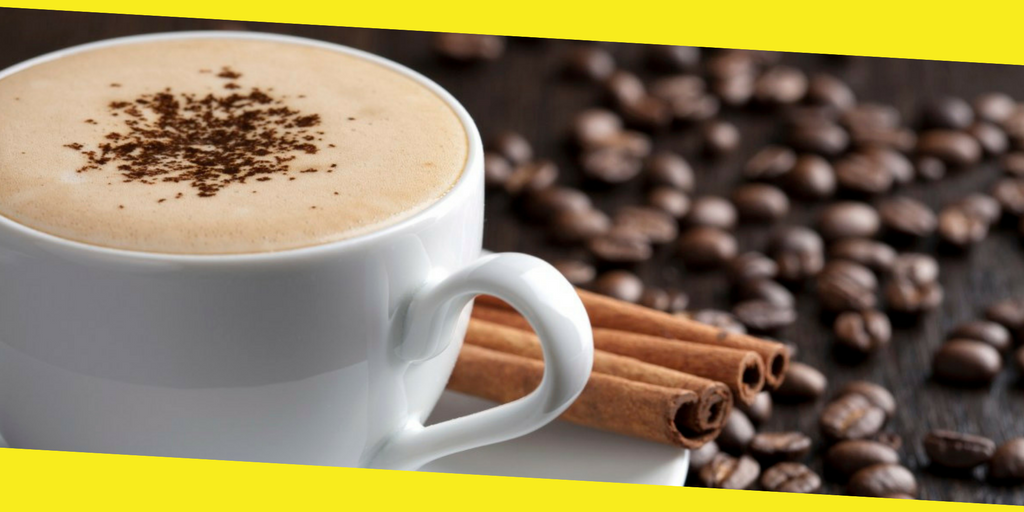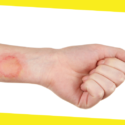5 Signs You’re Drinking Too Much Coffee
This post was last updated on November 19th, 2024

Coffee is one of the most consumed drinks because of it’s magical powers to keep you alert and energetic throughout the day, and on days when you’re running low on energy, coffee can prove to be a divine gift to boost yourself up. But beware of drinking too much, as you might end up experiencing some side effects.
The effect of coffee on health is a pretty controversial topic but one thing is for sure that its benefits outweigh the adverse effects. Coffee has numerous health benefits like improving your memory and cognitive function, reducing the risk of diabetes and heart disease and increasing life longevity. Stating the obvious, anything in excess can be harmful but in moderation coffee can do wonders to your body.
Excess caffeine consumption may hype up your nervous system and affect your body. It can disturb your sleep patterns, impact hunger and elevate your stress hormone as well. Drinking coffee first thing in the morning without having breakfast “can give you jitters, shakes, and other withdrawal effects, including mood changes. It can also increase symptoms of anxiety, as well as boost your heart rate, irritability, and inability to focus,” says Dr. Adam Simon, chief medical officer at PushDoctor.co.uk.
But don’t worry because even too much caffeine does not necessarily require serious medical intervention. Just letting it get out of your system itself in a day or two can solve the problem. Drinking a good amount of water, some exercise and consuming foods high in magnesium or potassium are also known to treat minor symptoms.
Latest researches suggest drinking between 3-5 cups of coffee per day as safe, but this may not stand true for everyone. How much coffee is too much differs for each one of us but caffeine overdose is usually termed as any amount greater than the recommended 400 mg for a healthy adult and 100 mg for an adolescent.
Here are a few ways your body tells you that you’ve gone overboard with caffeine:
1. Palpitations
If you feel like your heart is racing even when you’re sitting idle, it could be a sign you’ve crossed your limit of coffee. Heart palpitations can be intimidating and usually happen after the consumption of stimulants. Caffeine is also a CNS stimulant, that immediately increases blood pressure and makes your heart beat faster, causing palpitations and irregular heartbeats. If you continue drinking coffee even after palpitations, it could lead to heart arrhythmias, dizziness and fainting spells. The only way to treat these heart palpitations is to avoid caffeine altogether.
2. Frequent Bathroom Trips
Caffeine is a well known diuretic, a substance that flushes out water from your body into urine. So if you have had a lot of coffee some day, you will be visiting the bathroom very frequently. To avoid this issue, experts recommend having a healthy snack with your cup of coffee, as food slows down fluid movement to the bladder.
Coffee also possesses laxative properties and can actually help you maintain regular bowel, but excessive intake is bound to cause diarrhea. According to The International Foundation for Functional Gastrointestinal Disorders, caffeinated beverages have a laxative potential and too much consumption can cause chronic diarrhea.
The acidic nature of coffee can also be the cause of indigestion along with the stimulating effect on the gut. Infact, diarrhea can not only happen during a caffeine overdose, but also during the period of withdrawal. Therefore it is always recommended to withdraw gradually over the course of few days.
3. Tremors or Jitters
That alert feeling might be sole reason you drink coffee, but sometimes that feeling can become too much and make you feel jumpy, jittery and anxious. This symptom is one of the most commonly experienced ones by coffee drinkers who have gone too far. Whether it manifests as shakiness, tremors or restlessness, they all point to the same culprit which is caffeine.
Caffeine stimulates the release of “fight and flight” hormones like adrenaline, and an overdose of coffee can lead to constant presence of these hormones in your blood, making you feel restless and anxious.
Excess caffeine can also overstimulate your central nervous system to produce dopamine that causes hand tremors, jitters and nervousness. These hormones can ultimately cause anxiety and anger outbursts if not taken care of.
4. Irregular Sleep
Insomnia is the most prominent effect of excessive coffee intake. It not only makes it harder for you to fall asleep, but also significantly reduces the number of hours you sleep along with affecting the quality of your sleep. That cup of joe you drank in the afternoon could be the reason why you stayed up all night.
According to the National Sleep Foundation, caffeine produces a stimulating effect with in 15 minutes of its consumption and reaches its peak approximately within an hour. The shocking part is that it continues to affect your body for several hours, almost 6 hours for one half of the caffeine to be eliminated and 12 to 14 hours to wear off completely. Your body’s tolerance for caffeine also tends to decrease as you age which means that you might have to reconsider your coffee drinking habits.
Try to drink your coffee as earlier in the day as possible and reduce the number of cups for better sleep. Make sure your last cup of coffee is consumed no later than noon.
5. Headaches
Headaches can happen due to a number of reasons, but if you have ruled out common suspects like dehydration, stress and lack of sleep, then you should consider your coffee intake because headaches are among the most common withdrawal symptoms.
Caffeine intake and headache occurrence have a weird connection. Headaches can occur both due to excessive consumption of caffeine, as well as sudden cessation or reduction of it. Many over the counter and prescription pain relievers contain a moderate amount of caffeine (e.g. Excedrin) as they by help by improving the effects of other pain relieving drugs. On the other hand, if you are a regular coffee drinker then consuming even a cup less than usual can cause withdrawal symptoms (most commonly headaches).
This is the reason why experts recommend slowly decreasing your caffeine intake instead of abruptly leaving the habit.
About the Author:
Lisa Brown has been helping her readers in successful business and entrepreneurial strategies for the past 3 years. She currently works with Ekuep, which is the answer to UAE’s growing restaurant industry. Ekuep is the brand that restaurants, bakeries, cafes, juice bars, and more turn to when they want to stock their kitchens with only the best restaurant equipment.
Recommended For You
Maintain Nutrient Balance With A Gluten-free Diet
Most Inside
Most Inside offers high-quality recommendations and valuable updates to enhance all aspects of your life, providing premium guidance and enriching experiences.




